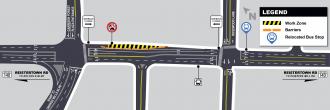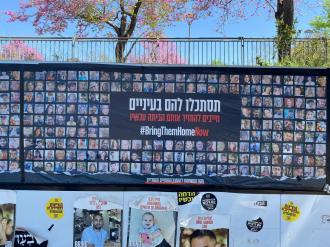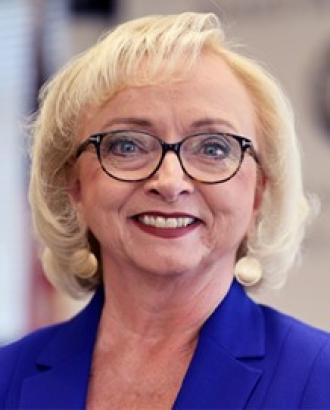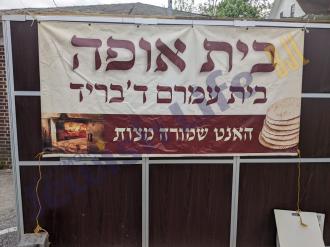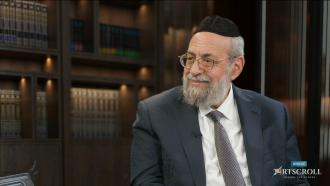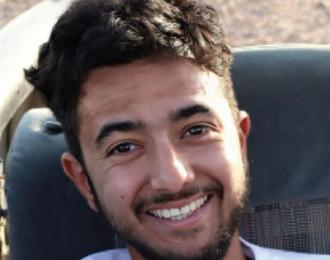Baltimore, MD - Sept. 3, 2020 - It had been 34 years since I had last seen a doctor and even I will admit that maybe it wasn’t the smartest thing in the world to not to go back for follow-up visits once it seemed I had closed the book on my bout with non-Hodgkin’s lymphoma. But the persistent pain in my upper gums that hit with a vengeance every time I was physically stressed was getting harder and harder to ignore despite my dentist’s assurances that he couldn’t find anything wrong. I casually mentioned the problem to my best friend in the whole world, Moshe Schecter, and far from pooh-poohing it, he told me about a mutual friend who described similar symptoms to her doctor and found herself on an operating table undergoing bypass surgery the very next day.
But I’m getting ahead of myself.
My name is Jeff Cohn and for the past ten years I have been running Baltimore Jewish Life, the news site that keeps Baltimoreans informed, both in our beautiful city and beyond. I run a one-man show here, and BJL, which has its finger on the pulse of Baltimore’s Jewish community, is my baby. The idea that I could be facing serious illness was not a proposition I was willing to face, having invested my heart and soul into the site, which could only function as long as I was there to run it. But I’m not going to lie. Moshe had scared the living daylights out of me, so much so that I did the unthinkable: I picked up my phone and called my doctor and good buddy, Dr. Aaron Goldberg.
My appointment was on July 30th, 2019, with Aaron summarily deciding that a stress test was in order. The first available date wasn’t for another two weeks, too far in the future for Aaron’s liking, and in no time at all, his office had finagled a test for me on Thursday, just two days away. I laced up my sneakers on the appointed day, headed for my stress test, and it wasn’t long before I was getting back into my car confident that I had nailed it.
I didn’t even have a chance to turn on my ignition before Aaron’s text pinged, those three short words changing my life forever.
“Call me NOW.”
All caps? From your doctor? You have to know that whatever is coming probably isn’t good. Within minutes, Aaron was handing me off to local cardiologist Dr. Charlie Cummings, telling me to call him immediately. I wasn’t quite ready to face the music just yet, so I went home for breakfast, but my well thought out plans were rudely interrupted by a call from Dr. Cummings’ secretary, instructing me to come to the office right away. Ever a contrarian who hates being told what to do, I sat down and enjoyed my morning meal before heading for yet another dreaded medical appointment. Unfortunately, the news went from bad to worse - I needed to have one, or maybe two, stents put in the very next day.
Stents? Okay, I could handle that. Despite my aversion to doctors, I knew I was in good shape and I answered affirmatively when Dr. Cummings asked me if I could have managed to walk up the five flights to his office. In my mind, I had the entire process mapped out: They would stent me the next morning and I could still be home a few hours later in time for Shabbos.
I should probably mention that I am a Yekkie and really not fond of seeing my carefully orchestrated plans crumbling before my very eyes, which is exactly what happened the next day, which coincided with Rosh Chodesh Av, definitely not the most fortuitous of times on the calendar. From the moment I got to Sinai Hospital’s cardiac-cath lab and the nurse told me to put all my clothing into the large bag she was holding in her hands, I knew that I was no longer in control of my life, something that didn’t sit well with me at all. Boruch Hashem, I had no idea just how long that situation was going to continue, and if I had, I probably would have had a heart attack on the spot, which thankfully I did not.
They told me it would take about 45 minutes to put the stents in, and being semi-sedated, the only things I remember about the actual procedure were that I was absolutely freezing and ridiculously itchy. It couldn’t have been more than half an hour later that Dr. Cummings came back and told me that they hadn’t put in the stents after all.
I was overjoyed, sure that Hakadosh Boruch Hu had performed a miracle for me and that Dr. Cummings had taken a can of compressed air, blown out the blockages, and I was as good as new. I was ready to get up say Hallel to express my shevach v’hodaah to the Ribono Shel Olam when Dr. Cummings finished his sentence.
“We couldn’t stent you. You have four major blockages and need a quadruple bypass.”
I looked around the room to see who Dr. Cummings was talking to, because I knew good and well that he couldn’t possibly have been talking to me, but he was, and the bad news just kept on coming - my quadruple bypass was scheduled for 7:30 Monday morning. Figuring I could still take the bull by the horns, I asked him why he couldn’t do it right now while I was already dressed for the occasion, but he wasn’t budging. The team needed to be assembled, and he wanted them coming in fresh for my surgery.
Okay, even I could appreciate the logic there, so I began formulating Plan B: getting dressed, going home and spending Shabbos with my family, but far from applauding my idea, Dr. Cummings read me the riot act, telling me that there wasn’t a chance on earth that I was leaving Sinai that day. While he was tough, I knew I was tougher and I asked him to explain how I could be waking up every day at 3:30 or 4 a.m., putting in a full day of work, davening, learning and spending time with my family if my heart was in as bad shape as he said it was. I thought it was a great question that would totally blow him away, but, once again, I was wrong.
“Your heart has two sides,” Dr. Cummings explained. “One side has totally shut down and the other side has maybe a tiny drop of gas left in its tank. You need to stay here so that we can keep you alive until 7:30 Monday morning.”
It was another one of those moments when I was dumbfounded. How could I not know that all this was going on? His words had me absolutely terrified, and for the first time on what was going to be a very long journey, I began to think that this was more than a little serious. For the next three days, the staff at Sinai watched me like a hawk. There was a constant parade of visitors in and out of my hospital room and the doctors and nurses were beyond phenomenal. On a scale of one to ten, I would rate them 1,000. Still, being in the hospital on Shabbos wasn’t pleasant at all. Not being in shul on Shabbos was very upsetting to me.
There was one particular bright spot that stood out for me that Shabbos, with Hashem sending an angel in the guise of my surgeon, Dr. Peter Cho. He was clearly a devout man and I told him that I was grateful that Hashem had chosen him to be the messenger who was going to heal me. At that moment, I saw the words “ani maamin” reflected in his eyes and I knew that he was a G-d-fearing man and that everything would be okay. A short time later, my wife Karen told me he had spoken with her as well, sharing the story of a surgeon who told people that he “fixes G-d’s mistakes,” a sentiment that Dr. Cho found to be beyond sacrilegious.
“G-d is in charge,” Dr. Cho had told Karen. “He sees all and he knows all and he give us the talent to do what we do. I am just G-d’s messenger.”
Hearing that was like an injection of emunah that infused me with a sense of calm. It was clear that when Monday morning came and Dr. Cho picked up that scalpel, we would both know that I was in Hakadosh Boruch Hu’s hands and that he was just the shliach.
Sunday came and my rov and dear friend, Rabbi Moshe Hauer, came to visit me. I asked him if I should say viduy, sure that he would tell me it wasn’t necessary, since it was just an operation and people have surgery all the time. Once again, I was wrong, and I said viduy, something I hope not to say again, aside from on Yom Kippur, for many, many more years. My many visitors kept me occupied all day long, and before I knew it, it was 7:30 a.m. Monday morning and they showed up right on schedule to take me to the OR.
I don’t remember much other than a conversation with the anesthesiologist, who told me that he was tops in his class at Harvard and yet his mother still wanted to know why he couldn’t be more like his brother, who was both a priest and an expert in English literature. Next thing I knew, it was four hours later, and they tell me I was more than a little entertaining as I was waking up, telling Dr. Cho that I loved him.
The next chapter in my life, the one titled “Recuperation,” began, and suffice it to say that the first few days weren’t fun at all. I was in a lot of pain, which I guess makes sense given that I had just undergone one of the most dangerous surgeries out there, and every time I fell asleep, they would wake me up for one reason or another. That first night, they woke me up at 2 a.m. and told me that they would be back at 5 a.m. to put me in a chair. I begged them just to let me sleep. As painful as it was to get into that chair at 5 a.m., it was nothing compared to how much it hurt when my son Gobbie came at 7 a.m. with my tefillin and I couldn’t do more than say Krias Shema. I kept imagining my father sitting on my shoulder, being upset at me for missing davening. While logically I knew I had just undergone open heart surgery, the Yekkie in me doesn’t give up easily. Worse yet was accepting the simple fact that I hadn’t davened that morning. How could I not daven? Still, over time, I finally came to accept that not davening was my avodah at that time, and I did the best I could under the circumstances.
My week in the hospital was an endless blur that included very little sleep and even less food, because I literally had no appetite for anything. When they came to weigh me at one point, I was more than a little upset to find out that I hadn’t lost a single pound after an entire week of not eating. The technician assigned to the weigh-in jokingly told me, “Calm down or you’re gonna have a heart attack,” his dark humor a welcome bright spot during a week that really wasn’t fun at all.
By the time Friday rolled around, I was ready to reclaim my clothing and head home for Shabbos, a plan I made very clear to Brian, the sweats-clad physicians’ assistant who came to see me. Brian explained patiently that he knew I was anxious to leave, but my blood pressure readings were a little on the high side, and we went back and forth a few rounds, with me telling him, “Brian, do you know who I am? I’m Jeff Cohn and I am going home for my Sabbath.”
After a week in the hospital, I needed to feel like I was in charge of my life, even if just a little, and just repeating my name made me feel like I was a someone, not just a face in a hospital bed who had no control over his own destiny. Ultimately, they tweaked my medicine and I was able to leave before Shabbos, my victory short-lived when, just a few days later, my nephew looked at me and said in all seriousness, “Uncle Jeff, you look like you’re dead.” Truth be told, he was probably right, but coming home was a big first step in a positive direction.
I’m not going to lie to you. It was a long haul, and even now, a full year later, I am still not completely back to myself, although I am worlds better than in those early days, when I sat in our living room recliner eyeing two flights of stairs, one going up and one going down, just like in Yaakov Avinu’s dream. It was obvious that this malach wasn’t doing stairs any time soon, and when I wasn’t parked in the recliner, I was in our main floor guest bedroom, where I constructed an island of pillows next to the wall so that I could sleep sitting up, if only I had actually been able to doze off.
The whole experience was surreal. There were days when I would sit in the recliner, while Karen, who had taken six weeks off from work, was in the kitchen orchestrating the many arrangements and appointments that now dominated my life. I would hear her say, “Hi, I’m calling about my husband, Jeff Cohn, who just had a quadruple bypass,” and I would think to myself, “What in the world is she talking about?” It really was an out-of-body experience, watching what was going on without being part of the drama playing out in front of my eyes. Other times, I would find myself contemplating the stairs, but to be honest, the guest room was so much more convenient than my bedroom, and while I could have managed going downstairs to my office, coming back up again was clearly not happening.
My grandkids, who all live nearby, were afraid to come near me. They were so used to their normally jovial Opa, who was always cracking jokes, and they couldn’t figure out how to deal with this solemn stranger in the recliner who didn’t even have the energy to make the recliner go up and down without help. Over time, we managed to make it work, and I would ask them to rearrange a blanket or move a stool nearby so that they would realize that I was still me.
There was one day that still stands out vividly in my mind, one of those rare occasions when I was home alone, maybe two months after my surgery. I heard a light tapping at the door and an elderly man with a white beard and a black hat walked into my house, pulling out a letter certifying that he was coming to collect tzedakah. Having not been in shul for so long, I was elated at the opportunity to do a mitzvah that I had been accustomed to doing daily, and I pulled myself out of the recliner - no small task - and reached for my tallis bag. I grabbed the entire wad of the special pre-printed scrip used in Baltimore for collectors, which also includes a donation to a local institution, and gave it to him. I honestly don’t know how much I had in there - it could have been $36 or $360 - but it didn’t matter to me. All I know is that I felt like Avrohom Avinu when he saw the malachim coming to him, and while I couldn’t run to shecht animals for my guest, it was clear that Hakadosh Boruch Hu saw just how badly I needed an opportunity to do a mitzvah. I firmly believe he was Eliyahu Hanovi, and that when he left my house, he went back upstairs until it was time for his next earthly errand.
The days slowly turned into weeks, and while I had hoped to be in shul for Rosh Hashanah and to take my place at the amud for Mussaf on Yom Kippur, it was clear that that wasn’t going to happen. Yaakov Litke, the baal tefillah the shul brought in to take my place, came to my house to learn some of the niggunim I usually use and I took solace in the fact that both of my sons would be davening for the amud even if I wasn’t. My good friend, Rabbi Shmuel Krawatsky, came and blew shofar for me on Rosh Hashanah, and when my son Rafi popped in to see me on Yom Kippur, I knew that it was as much a Yom Tov visit as an opportunity to make sure that I wasn’t fasting. I showed him the sheet of shiurim Rabbi Hauer had left for me, telling me how much I should be eating, but in truth, I would have sooner died than eaten on Yom Kippur. I know, it wasn’t the right decision, but what can I say? I’m only human, and sometimes my stubborn streak gets the better of me.
I did go to shul for Ne’ilah, and while I enjoyed hearing Gobbie daven, it was a difficult experience for me. How could I be in shul and not be yelling out, “Shema Yisroel,” and, “Hashem hu ha’Elokim”? Thinking about that Yom Kippur still brings tears to my eyes. Going to shul on Hoshanah Rabbah and watching the hakafos instead of participating was equally hard, and I still haven’t made it back yet, with coronavirus further extending my exile. As someone who always prided himself on being one of the asarah rishonim, not going to shul has been extremely tough, and to be honest, with coronavirus rearing its ugly head, I don’t think I have left the house more than six times since the outbreak hit, and even those outings were just for medical appointments.
My life is almost back to normal in most ways, but like everyone says about Covid-19, it’s a new normal. We had always tried to make our brachos out loud l’zeicher nishmas Shaya Gross, son of Baltimore’s Fishel and Saralee Gross, but we are much more careful about it now.
After all those years of avoiding doctors, I am religious about my appointments, and realize what a mistake it was to not have kept up with my visits given the history of heart disease in my family. I take medicine daily and halved the two hours I had been doing on the treadmill without fail for months when my podiatrist told me I was wearing out my feet.
While I cut out meat and soft drinks years ago when I had cancer, I have always eaten well, but I am positively militant about my diet these days and have dropped a whopping 60 pounds, not that I ever thought I had that much weight to lose.
My voice isn’t quite what it used to be thanks to the endotracheal tube they inserted during surgery, something that obviously doesn’t sit well for a guy who hopes to be davening for the amud on Yom Kippur not only this year but in many more years to come.
I still don’t sleep much, but I don’t mind, because I don’t want to miss a single minute of the day, and I look forward to finally making a seudas hodaah and publicly thanking the Ribono Shel Olam for His kindness, both now and when He got me through non-Hodgkin’s lymphoma all those years ago.
Boruch Hashem, my fears that Baltimore Jewish Life would collapse without me were unfounded thanks to Gobbie, who knew nothing about running the site before all this happened but really stepped up to the plate. Somehow, he managed to juggle both his job and mine, enlisting the help of his oldest daughter, Tova, then a high school senior, to keep things going while I was gone, and they did such a great job that months later, people told me that they barely realized that I was missing in action. Gobbie also managed to fill my size 10-½s in another big way, taking over my daily 32-year-long chavrusashaft with my dear friend, Eli Schlossberg, carrying on a tradition begun by our fathers, who had learned together for four decades.
Most importantly, I hope that sharing my story will help others, who might one day find themselves in my shoes. I want people, especially those who might be at risk, to know how important it is to schedule regular checkups. I want to spread the message that jaw pain can be indicative of life-threatening problems. Many dentists and hygienists have no idea that the jaw is a conduit to the heart and can be a serious indicator of cardiac health. I want people who are facing bypass surgery to appreciate that a positive attitude and emunah are key to getting through this particular parsha in their lives, no matter how daunting it may seem.
The past year hasn’t always been easy, but I am so grateful for every moment. No matter how many words currently exist in the English language, I know that there aren’t enough of them for me to express my hakoras hatov to the Ribono Shel Olam, who far from just eliminating the blockages that surrounded my heart has guided me to a newfound appreciation for the many brachos in my life, a gift that fills my heart with joy all day, every day.
This story appeared in the Aug. 26 issue of The Yated under the title Change of Heart



